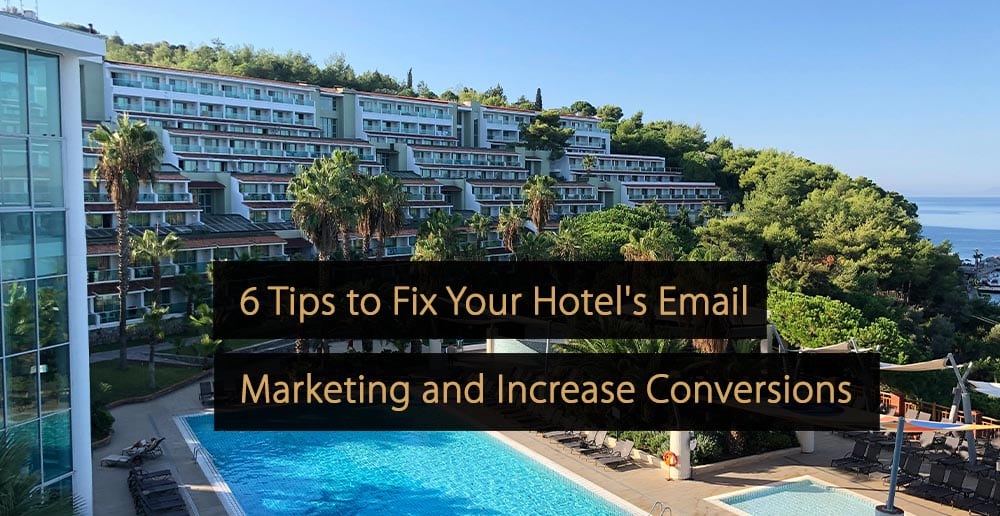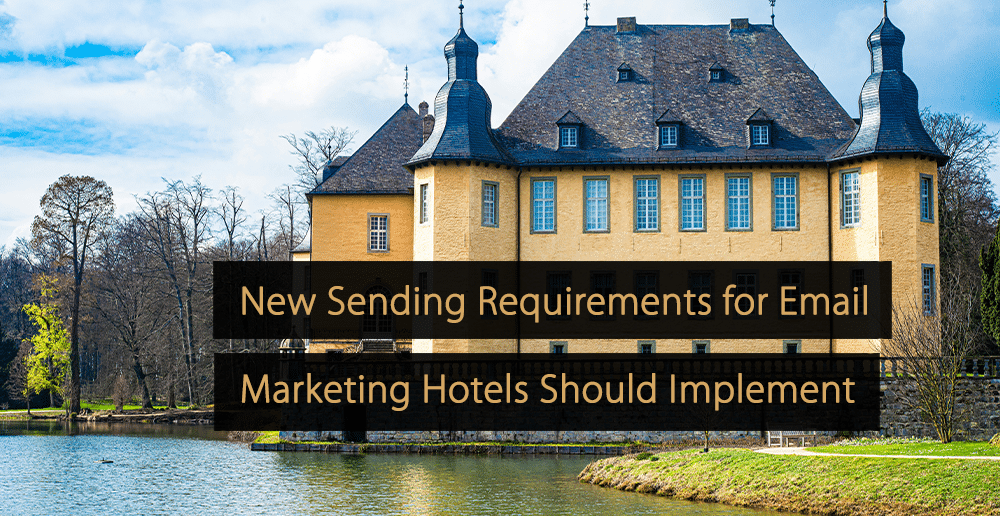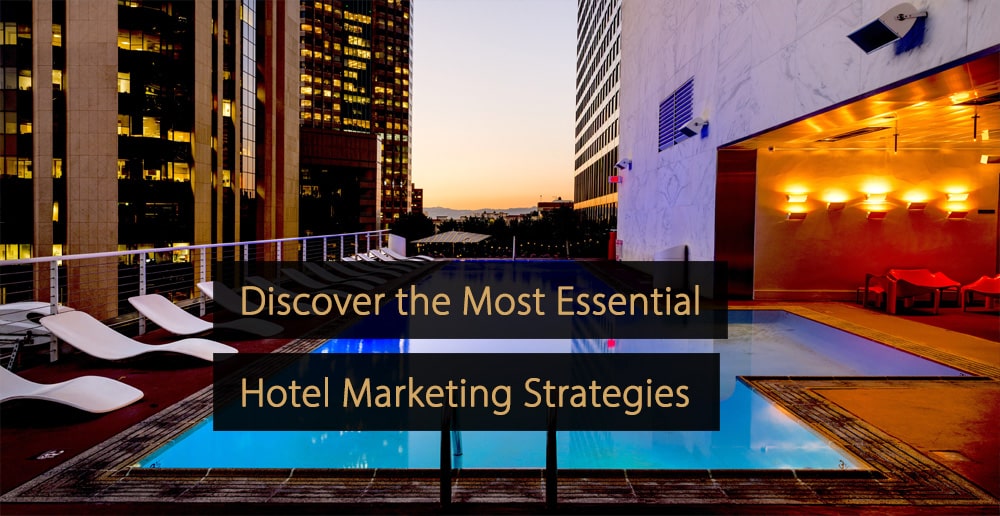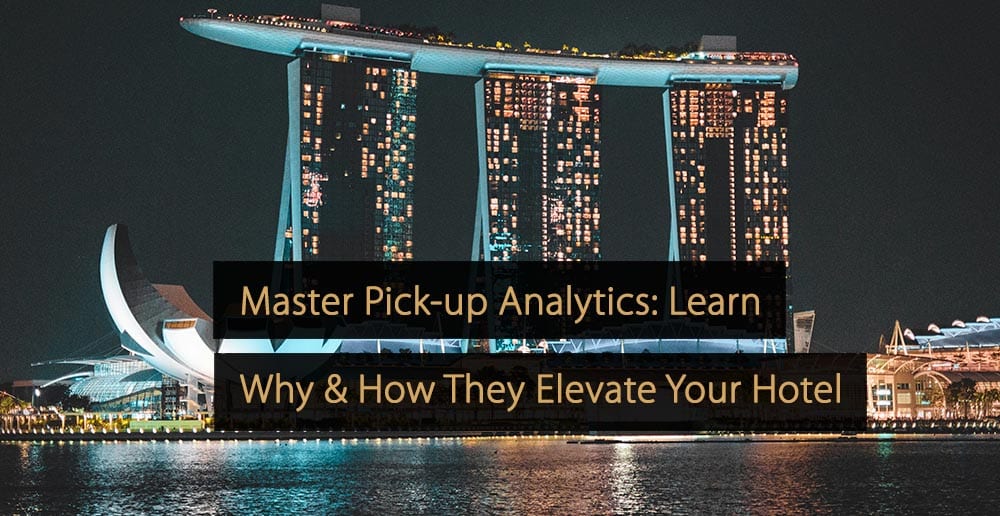When exploring the landscape of digital marketing for hotels, we see many new emerging trends, such as AI, Automation, social media, influencer marketing, and more. Many may wonder, “Is email marketing still relevant for hotels?” And the answer is an assured yes.
Why Email Marketing for Your Property?
Even with all the new tech tools and marketing options available, email marketing continues to drive Return on Investment (ROI) effectively for hotels. Let’s dive into a detailed guide on how to build your hotel email marketing strategy in 2024.
Why should hoteliers include email marketing in their strategy? One of the main reasons is that it’s effective and there are a lot of people who like it. Constant Contact revealed that 55 percent of customers prefer emails from businesses and nonprofits more than other communication methods, including text messaging and social media.
It’s also significantly cost-efficient compared to other marketing avenues. Survey found that every $1 spent on email marketing results in an average return of $36, a huge profit margin.
Moreover, email marketing lets you tailor your promotional messages according to customer preferences and behaviors. You can also ensure that they will be the ones reading them because they will land directly in their inbox.
But Is Email Marketing Everything?
One key point to remember is that email is not the only channel you should use to communicate with your guests. While many people like email, others prefer other channels, like SMS or WhatsApp.
The main angle is, that there is not one message that fits all channels, in this case you need to understand your guests to make the right decisions and find a balance. Email marketing for hotels is not dead; however, you need to open yourself up to a multi-channel approach and reach a balance.
Certain messages, such as booking confirmations, are best received through email. However, if you want to share the Wi-Fi code or a breakfast discount code, you could use other channels, such as SMS or WhatsApp.
And the golden rule is to always ask your guests what their preferred channel is. In this way, you will create a valuable experience for them from the first moment and increase their satisfaction.
3 Types of Email Marketing
In this section, you will learn about three main types of email marketing.
Transactional Emails
Transactional emails are named so because they deal with the transactions between you and your customers. They are generally automated responses triggered by customer actions, such as booking confirmations and room upgrade confirmations.
Customers expect this type of email to reassure them that everything went okay in their process. Now, is it just about confirmation? No, not really. Through these emails, you can communicate directly with your guests and transmit your brand essence, which will help you build a relationship with them.
Promotional emails
From a literal standpoint, promotional emails help you promote a product, service, or offer to your guests. You generally send them out during the pre-stay, for instance, to offer room upgrades, breakfast or dinner, spa treatments, or other special amenities.
The best way to make these campaign emails effective is to not send the same offers to everyone but consider their profile and preferences.
Nurture emails
You might be thinking about regular newsletters; they are part of nurture emails. Newsletters help you stay on top of your guests’ minds by regularly providing them with information or updates about your business and offerings.
These emails are more about building trust and maintaining a connection than immediate selling. They’re also a way to remind your customers how much you value them.
Build an Effective Hotel Email Marketing Strategy
Email marketing for hotels isn’t just about sending emails. It’s about building relationships with your guests and offering them incredible value. Here are some best practices to help you build an email marketing strategy that enhances guest experience.
1. Gather Insights About Your Guests
The first step to any successful marketing strategy is to know your audience. For hoteliers, this means understanding your guests’ preferences or dislikes, and their main characteristics such as their origin, and their generahers.
What services do they look for the most? Do they want a spa invitation or a breakfast discount? How many of them book suites instead of the superior room? What type of room is the most popular one?
The more insights you get about your guests, the easier it will be to create campaigns that resonate with them and a bigger email marketing strategy that helps you reach the desired results.
Tip: A Hotel CRM can help you gather demographic and behavioral data about your guests, analyze preferences, and gather guest feedback to uncover important insights.
2. Segment Your Audience
Once you have a clean guest database, segmenting your guests can help you send targeted, personalized emails. Remember, no one message fits all when talking to customers. This means it’s unlikely that one single offer can meet every guest’s preference.
While some may appreciate a luxurious hotel dining experience, others may enjoy exploring local options more. Another example is a business traveler who won’t find your offer for a couple’s massage as attractive as an actual couple traveling for their anniversary.
Therefore, instead of overwhelming your guests with email offers that are left unopened, you need to segment them and send only the right messages.
Again, a CRM designed for hospitality is very useful here, because you can categorize your guests in different ways, like based on demographics, past interactions, booking history, and more, and even combine a few traits to be more detailed and tailored.
Some examples are: first-timers, returning guests, millennials, bookings with no breakfast, and high-spenders.
If you want to get more ideas from other audiences, read this article: 9 audiences you can create for better hotel marketing campaigns.
3. Create Engaging Content
While most emails are generally skimmed over, emails with engaging content often tend to stand out. Apart from providing exclusive offers and discounts, this could mean creating catchy headlines, showcasing beautiful pictures of the property, or simply being aesthetically pleasing.
Create a design that embodies your brand identity. In the email, use pictures, infographics, or illustrations that speak about your services and properties.
Now it’s time to add a personal touch! It goes beyond addressing them by their real name in the subject line. With your created segmentation, you can personalize email campaigns and send the right messages via the right channel.
Use the insights you already got from your guests. Now you know what they like and can create a message portraying the same idea. For returning guests, consider offering them a 15% discount at your other hotels in different locations.
Believe it or not, not caring about the type of content you send out to your guests and forgetting about personalization are one of the most common mistakes that destroy your guest experience. If you want to use email marketing effectively, you need to pay attention to it.
4. Make Use of A/B Testing
A great feature of email marketing that hoteliers can also use is A/B testing. That means some of your audiences will receive an email with subject A, while the other part will receive it with subject B. Then, you can evaluate which subject performed best and use it for the rest.
You can apply this testing not only to the subject, but also to the actual content or images in the email. Then, you will understand what makes your guests react and gets their attention.
5. Analyse and Optimize
Your work doesn’t end with sending out emails. Analyzing the effectiveness of your campaigns by tracking open rates, click-through rates, engagement rates, unsubscribe rates, and conversions is vital. Use these statistics to refine your approach and improve future campaigns.
Remember to constantly update your email list since unengaged subscribers could negatively impact your email delivery. Therefore, regularly clean your email list to remove inactive subscribers to ensure its quality and relevance.
6. Plan Ahead and Embrace Automation
Email automation can be a game-changer, and not just for your guests but for your team. For example, you can schedule welcome emails for new customers, thank you emails post-checkout, and reminders for abandoned bookings.
Imagine how much time your marketing team can save by forgetting about manually sending each email? As for the guests, automated emails will arrive at the right time, making developing a strong interaction and relationship with your guests easier.
Although it might sound like something too complicated, the truth is that it can only take a few minutes if you use the correct tools. In this case, a CRM system is key. In this article, you can learn more about how a CRM can level up your marketing efforts.
Common Mistakes to Avoid
Bombarding your guests with generic offers can come off as annoying spam. As we highlighted the importance of personalization above, take the opportunity to customize your offers for each guest and make them remember you.
Don’t send emails for the sake of emails. Sending too many can lead to unsubscriptions, but by sending too sparingly, your audience might forget you exist.
Try to find a balance and determine what your audiences prefer, and plan your guest journeys in advance. Remember that is not about how many touch points you have, but if you are delivering value on each one.
Finally, don’t forget to make your campaign desktop, mobile and tablet-friendly. Study indicates that 41% of people view emails on their phones, 39% on desktops, and the remaining 20% on tablets and other devices. With the increasing use of mobile devices, optimizing your emails for mobile viewing is very beneficial.
Conclusion
More than just a way to communicate with your guests, email marketing in the hospitality industry will continue to be a powerful tool in 2024. However, not all guests will have the same preferences, so you should aim for multi-channel communication, finding a balance between email marketing, SMS, and WhatsApp.
An effective email marketing strategy for your property helps hoteliers personally reach out to guests, grow brand awareness, and build long-term relationships. As the landscape evolves, following our best practices, staying up-to-date with technological improvements, and changing guest behavior will empower your business.
Remember, every email you send contributes to your customer’s perception of your hotel. Make each one count!
Here’s to more bookings, revenue, and better customer relationships. Can email marketing take your hotel business to new heights in 2024?
Free Guide: The Real Way to Recover Direct Bookings and Outcompete Others Long-Term
In this guide, you will find different strategies you can apply to answer the million-dollar question and increase your direct bookings and an approach that will help you stay competitive in the long term. Because this is when you see the real results.
Click here to download the report “The Real Way to Recover Direct Bookings and Outcompete Others Long-Term“.







Leave A Comment